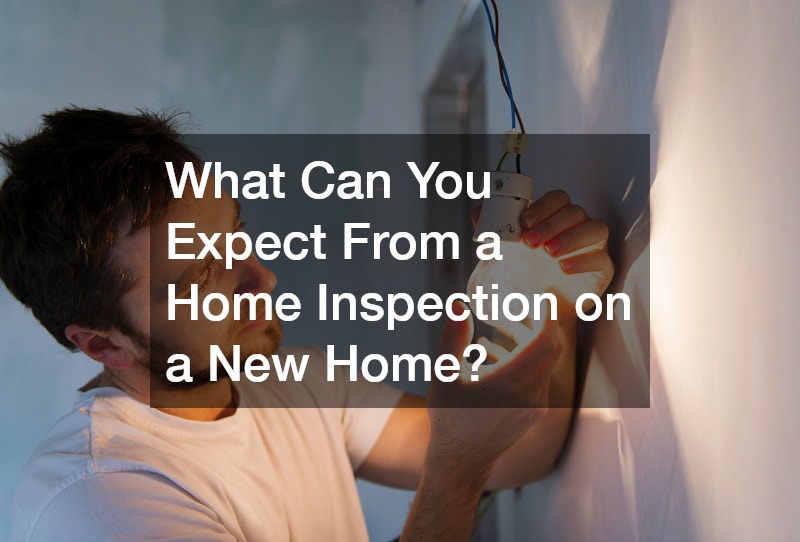Purchasing a new home is a significant investment, and understanding the condition of that home is crucial. A home inspection serves as an essential step in the buying process, providing insights into the property’s overall health and identifying potential issues before they become costly problems. This article explores what prospective homeowners can expect during a home inspection for a new home, from the initial assessment to the final report.
- 1. Why is a Home Inspection Necessary for a New Home?
- 2. What Areas are Typically Covered in a New Home Inspection?
- 3. How Long Does a Home Inspection on a New Home Usually Take?
- 4. Are Home Inspections for New Homes Different from Older Homes?
- 5. What Qualifications Should a Home Inspector Have for a New Home?
- 6. Are Specialties Like HVAC and Roofing Included in a New Home Inspection?
- 7. What Should You Do After Receiving a Home Inspection Report?
- 8. Can You Attend the Home Inspection, and Should You?
- 9. How Much Does a Home Inspection on a New Home Cost?
- 10. Are Follow-Up Inspections Needed After the Initial Home Inspection?
- 11. Common Issues Found in New Home Inspections
- 12. The Role of Technology in Home Inspections
- 13. Building a Good Relationship with Your Home Inspector
- Conclusion
1. Why is a Home Inspection Necessary for a New Home?
1.1 Identify Hidden Issues
Even new homes can have hidden problems. Construction processes can sometimes overlook essential details, leading to issues such as improper installation of propane systems or plumbing problems that could require costly water damage restoration down the line. A thorough inspection helps to unveil these hidden issues, ensuring that you are aware of any necessary repairs.
1.2 Ensure Builder Compliance
Home inspections also ensure that the builder complies with local codes and regulations. Inspectors check for compliance regarding electrical systems, plumbing features, and structural components. If deficiencies are found, it may be necessary to address these before finalizing your purchase.
1.3 Peace of Mind for Buyers
Finally, a home inspection provides peace of mind. Knowing that a qualified professional has evaluated the home allows buyers to feel more confident in their decision. Whether it’s minor issues like garage door spring replacements or more significant concerns like furnace repair, understanding the state of your new home is invaluable.
2. What Areas are Typically Covered in a New Home Inspection?
2.1 Structural Components
Inspectors will assess the structural integrity of the home, including the foundation, framing, and overall stability. Any signs of distress in these areas could indicate more serious problems that require immediate attention.
2.2 Electrical Systems
The electrical system is another critical component examined during the inspection. This includes checking outlets, circuit breakers, and wiring to ensure everything meets safety standards. Properly functioning electrical systems are vital to avoiding hazards like fires.
2.3 Plumbing Features
Inspectors will evaluate the plumbing systems for leaks, proper drainage, and overall functionality. This includes checking toilets, sinks, and any appliances that connect to water lines. If issues are detected, they could necessitate water damage restoration or even septic pumping in severe cases.
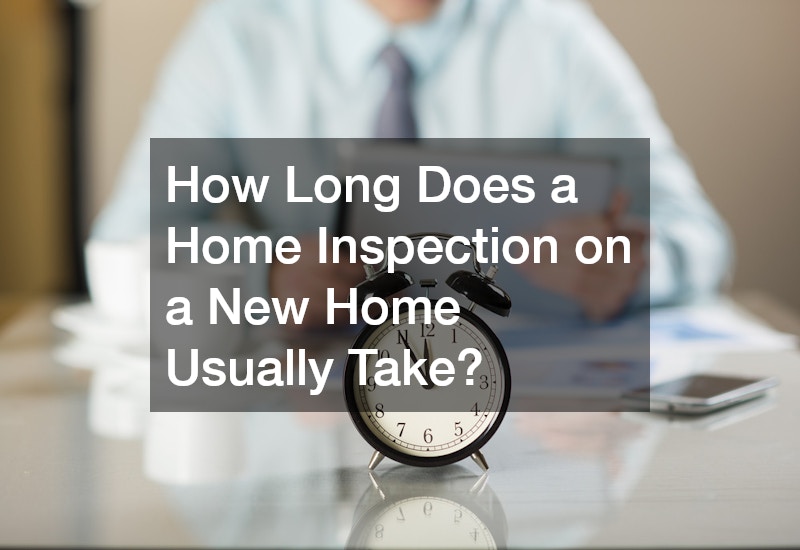
3. How Long Does a Home Inspection on a New Home Usually Take?
3.1 Average Duration
The average home inspection typically takes between two to four hours, depending on the size and complexity of the home. Smaller homes may take less time, while larger or more intricate homes may require a longer evaluation period.
3.2 Factors Affecting Time
Several factors can influence the duration of an inspection, such as the home’s age, the number of systems present (like HVAC or propane systems), and the inspector’s thoroughness. Additionally, if specialized services are required—such as a detailed roofing evaluation by a shingles services provider—this may extend the time needed.
3.3 Scheduling Considerations
Scheduling your inspection promptly is essential, especially if you’re on a tight timeline. Make sure to book your inspection after the home has been completed but before closing, allowing time for any repairs the inspection might uncover.
4. Are Home Inspections for New Homes Different from Older Homes?
4.1 Differences in Inspection Focus
While the fundamental principles of a home inspection remain the same, the focus can differ significantly between new and older homes. New homes might need more attention on construction quality and compliance with modern codes, whereas older homes often require scrutiny for wear and tear over time.
4.2 Typical Findings in New vs. Old Homes
New homes might reveal issues like improper installation of systems (including HVAC or fireplace service) or unaddressed minor defects. In contrast, older homes often present concerns such as outdated wiring, potential mold growth, or the need for mold removal companies to address existing problems.
4.3 Expertise of the Inspector
Choosing an inspector experienced in new constructions is crucial, as they will know what specific issues to look for. Their background can make a significant difference in identifying potential concerns that someone unfamiliar with newer building practices might overlook.
5. What Qualifications Should a Home Inspector Have for a New Home?
5.1 Certification and Licensing
A qualified home inspector should hold relevant certifications and licenses. These credentials ensure that the inspector has met industry standards and is knowledgeable about the latest building codes and safety regulations.
5.2 Experience with New Constructions
Experience with new home inspections is essential. An inspector familiar with new builds will know to check for common issues like improper insulation, ventilation concerns, or the proper function of propane systems and other utilities.
5.3 Professional Affiliations
Inspectors who are members of professional organizations often commit to ongoing education, staying updated on industry standards and practices. This commitment to professional development can significantly enhance the quality of the inspection you receive.
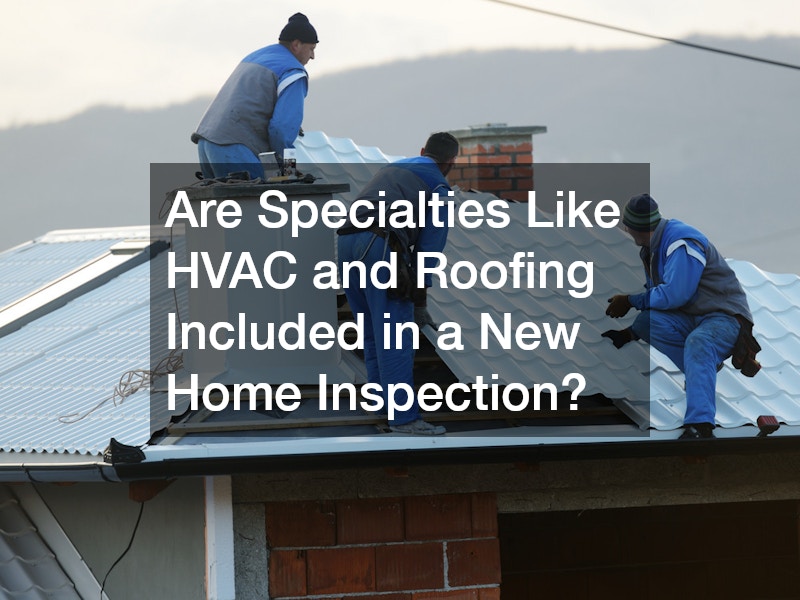
6. Are Specialties Like HVAC and Roofing Included in a New Home Inspection?
6.1 General Versus Specialized Inspections
While a standard home inspection covers many areas, some aspects might require specialized inspections. For example, HVAC systems may need a thorough evaluation by a qualified technician to ensure optimal performance.
6.2 HVAC Inspection Scope
Inspectors will typically check the HVAC system’s basic functionality, including the furnace and air conditioning units. However, if they suspect issues, you may need to hire a specialized service for a more in-depth evaluation.
6.3 Roofing Evaluation Criteria
Roofing is another critical area assessed during inspections. Inspectors will look for the quality of installation, the condition of shingles, and any signs of potential leaks. If issues are detected, you might need to engage roofing specialists for repairs.
7. What Should You Do After Receiving a Home Inspection Report?
7.1 Understanding the Report
Once you receive the inspection report, take the time to review it carefully. Understanding the findings will help you determine what repairs or negotiations are necessary.
7.2 Addressing Noted Issues
If the report highlights significant issues—like the need for furnace repair or a faulty septic system—you should address these with the builder. A proactive approach can help resolve problems before finalizing your purchase.
7.3 Negotiating with the Builder
Use the findings to negotiate with the builder regarding repairs or adjustments to the purchase price. This process can help you ensure that your investment is sound and that all critical issues are addressed before closing.
8. Can You Attend the Home Inspection, and Should You?
8.1 Benefits of Being Present
Attending the home inspection can be highly beneficial. Being present allows you to ask questions, understand the inspector’s findings in real time, and gain insights into potential issues that may not be clear in the written report.
8.2 How to Prepare for Attendance
To prepare for the inspection, compile a list of questions or concerns you may have about the home. This preparation will help you engage actively with the inspector and clarify any uncertainties.
8.3 Questions to Ask the Inspector
During the inspection, ask about critical areas like the HVAC system, plumbing, and any specialized services that may be necessary, such as mold removal companies or fireplace service. This dialogue will enhance your understanding and help you make informed decisions.
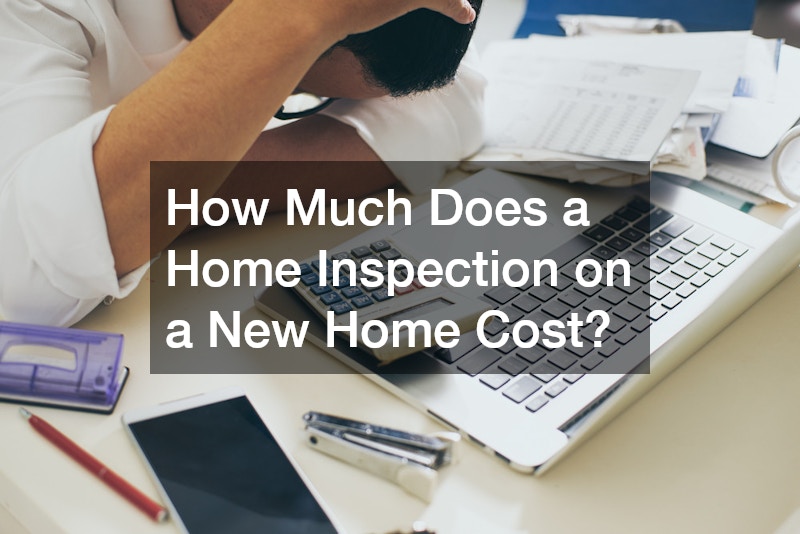
9. How Much Does a Home Inspection on a New Home Cost?
9.1 Average Cost Range
Home inspection costs can vary widely, typically ranging from $300 to $600 for new homes. However, the final cost may be influenced by various factors, including the home’s size and location.
9.2 Factors Influencing the Cost
Factors that can affect the cost of an inspection include the complexity of the systems involved (such as propane systems), the need for specialized services (like shingles services or well service), and the inspector’s experience and credentials.
9.3 Comparing Inspection Services
When selecting an inspector, it’s wise to compare services and prices. Look for qualified professionals who offer comprehensive inspections, ensuring that all critical components of the home, including areas like septic pumping, are evaluated.
10. Are Follow-Up Inspections Needed After the Initial Home Inspection?
10.1 Situations Requiring Follow-Up
If significant issues are identified during the initial inspection, follow-up inspections may be necessary to ensure repairs have been completed correctly. For example, after furnace repair or water damage restoration, a second inspection can confirm that everything is in order.
10.2 Frequency of Additional Inspections
The need for follow-up inspections depends on the severity of the issues found and the repairs made. It’s wise to schedule these as needed, particularly for critical systems like plumbing and HVAC.
10.3 Costs Associated with Follow-Ups
Follow-up inspections generally cost less than the initial inspection, but fees will vary based on the services provided. Always inquire about costs in advance to avoid surprises.
11. Common Issues Found in New Home Inspections
11.1 Construction Defects
Even in new builds, construction defects can arise. Common issues include misaligned doors and windows, improper insulation, and inadequate sealing around frames. These problems can lead to energy inefficiencies and discomfort in the home. Identifying these defects early can help you address them before they escalate into larger issues.
11.2 System Failures
New homes can also experience failures in essential systems, such as HVAC or plumbing. For instance, a furnace that does not operate correctly can lead to uncomfortable temperatures, while plumbing issues may cause leaks or low water pressure. Engaging specialized services for furnace repair or HVAC assessments can be crucial in addressing these concerns promptly.
11.3 Exterior Concerns
Inspectors often find issues with exterior components, including improper grading, drainage problems, and subpar landscaping. Poor grading can lead to water pooling around the foundation, increasing the risk of water damage. Addressing these concerns early, possibly with the help of a concrete contractor for proper drainage solutions, can save homeowners significant costs in the future.
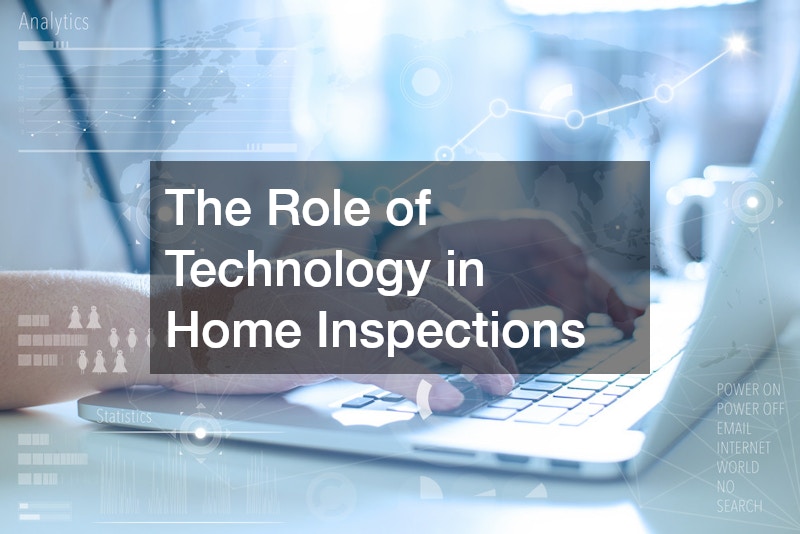
12. The Role of Technology in Home Inspections
12.1 Digital Tools and Equipment
Modern home inspections frequently employ advanced technology to enhance accuracy and efficiency. Inspectors may use thermal imaging cameras to detect heat loss or moisture behind walls, providing insights that traditional methods might miss. This technology is particularly beneficial for spotting issues related to insulation and moisture intrusion.
12.2 Online Reporting Systems
Many inspectors now offer digital reports that are easy to read and understand. These reports often include photos and detailed descriptions of issues found during the inspection. This transparency helps buyers grasp the severity of concerns, whether they relate to mold growth or the need for specialized services like mold removal companies.
12.3 Virtual Inspections
In certain circumstances, virtual inspections are becoming more common. These allow buyers to participate in the inspection process remotely, providing convenience and flexibility. Buyers can ask questions in real time, ensuring they understand any issues and how they might need to address them.
13. Building a Good Relationship with Your Home Inspector
13.1 Open Communication
Establishing open communication with your home inspector is vital. Feel free to discuss your specific concerns or areas of focus prior to the inspection. This dialogue can help the inspector tailor their assessment to meet your needs, ensuring you receive the most relevant information.
13.2 Follow-Up Questions
After receiving the inspection report, don’t hesitate to reach out with follow-up questions. Whether you need clarification on specific findings or recommendations for specialists (like those for fireplace service or well service), your inspector should be available to help you navigate the next steps.
13.3 Long-Term Relationship
Building a relationship with your inspector can also be beneficial in the long run. If you plan to conduct renovations or need ongoing maintenance (like septic pumping or routine HVAC checks), having a trusted inspector can provide peace of mind. They can recommend qualified professionals to assist with future needs, ensuring your home remains in top condition.
Conclusion
A home inspection is a crucial step for anyone purchasing a new home. It provides a comprehensive assessment of the property, helping identify hidden issues, ensure builder compliance, and offer peace of mind. By understanding what to expect during this process, prospective homeowners can make informed decisions, negotiate effectively, and safeguard their investment. Engaging with qualified inspectors and specialists for follow-up assessments ensures that your new home is as safe and sound as it should be, paving the way for a happy and secure living environment.
